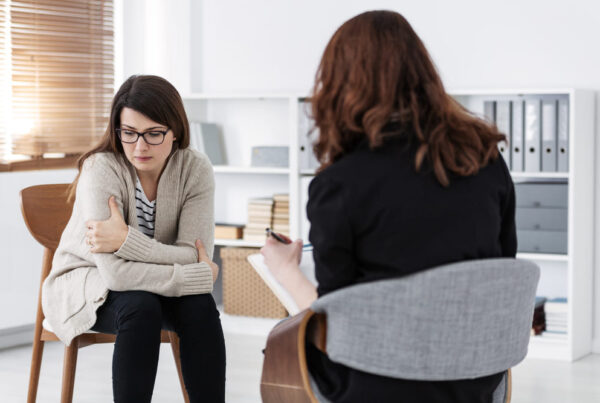At this time of year, we would typically be getting kids ready to go back to school and looking forward to Fall. New pencils, new backpacks, pumpkin spice latte, apple cider, and cooler temperatures. This year, things are looking very different, and in a lot of ways it feels as if we have lost a lot. How are you doing?

It is ok to grieve the changes that our lives have taken. In a lot of ways, we are suffering loss each and every day through this season of COVID-19. We are missing out on events and things to do. We are missing out on family and friends and interactions with them. We are missing out on the seasons of life.
- So what is grief?
Helpguide.org defines grief as a natural response to loss. It’s the emotional suffering you feel when something or someone you love is taken away. Often, the pain of loss can feel overwhelming. You may experience all kinds of severe and unexpected emotions, from shock or anger to disbelief, guilt, and profound sadness. The pain of grief can also disrupt your physical health, making it difficult to sleep, eat, or even think straight. These are normal reactions to loss—and the more significant the loss, the more intense your grief will be.
Coping with the loss of someone or something you love is one of life’s biggest challenges. You may associate grieving with the death of a loved one—which is often the cause of the most intense type of grief—but any loss can cause pain, including:
Divorce or relationship breakup
Loss of health
Losing a job
Loss of financial stability
A miscarriage
Retirement
Death of a pet
Loss of a cherished dream
A loved one’s serious illness
Loss of a friendship
Loss of safety after a trauma
Selling the family home
Even subtle losses in life can trigger a sense of grief.
As this season of COVID-19 continues and socially distancing continues, we have missed or felt the loss of many of these things. They haven’t been completely lost to us, but their presence in our lives has changed. Just these changes can feel like loss and trigger grief. Whatever the cause of your grief, though, there are healthy ways to cope with the pain.
In 1969, psychiatrist Elisabeth Kübler-Ross introduced what became known as the “five stages of grief.” These stages of grief were based on her studies of the feelings of patients facing terminal illness, but they translate to many of the changes and losses we experience throughout life.
The five stages of grief
Denial: “This can’t be happening to me.”
Anger: “Why is this happening? Who is to blame?”
Bargaining: “Make this not happen, and in return, I will ____.”
Depression: “I’m too sad to do anything.”
Acceptance: “I’m at peace with what happened.”
So why is it different in 2020?
This year, grief is different because most, if not all of us, have lost something and are in some stage of grief almost every day. It’s hard because grief isn’t sequential. No one experiences grief in quite the same way. Everyone has their timetable for grief AND, things are not merely getting back to normal.
What can we do? Here are some things that you can do personally to deal with your grief.
Engage with friends and family. Lean on the people who care for you and are in your circle. Let them know how you are feeling and ask for support.
Draw comfort from your faith. Engage in faith-based activities that help you find solace. These could be praying, meditating, or even attending church online or in-person. Going back to religious traditions that you may have forgotten over the years can help you feel more grounded and peaceful.
Join a support group. Many organizations offer support groups for different types of grief. Just check with local community groups to see if there are some meeting in your area.
Talk to a therapist or counselor. An experienced therapist or counselor can help you work through the obstacles you are facing and the intense emotions that may be accompanying them. Most counselors are working virtually now, so you can find someone to see you and never even have to leave your home or office.
Be active. Do something to get moving every day. Being active gets our bodies moving and helps to settle the mind.
But what can we do to support each other?
Be kind. Kindness can be contagious. Spread a little bit each day. You never know how a simple sweet word or gesture can change someone’s day.
Give Space. We are all feeling a little stressed. Just give a small space. It feels good to have a little breathing room.
Be patient. Just about everyone is doing something new every day. For example, have a little patience as someone struggles with touchless payment at the grocery, it might be their first time to try it.
We are all in this together. Let’s take the time to care for ourselves, our families, and our fellow neighbors.



